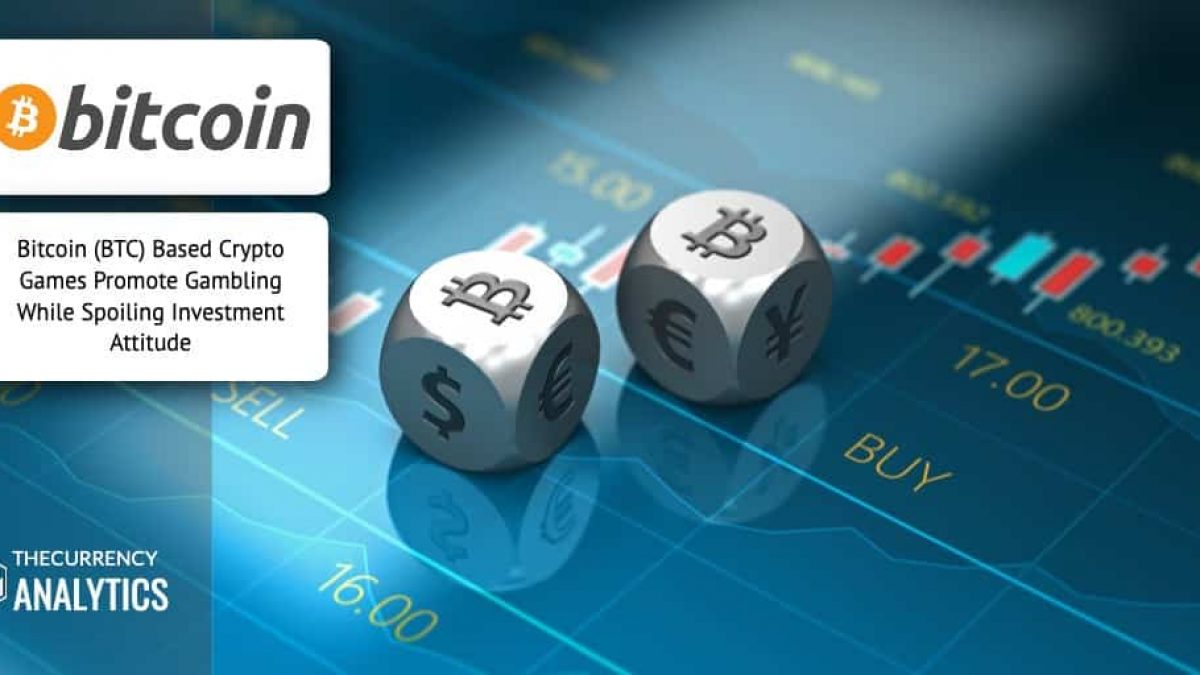Take a look at some recent headlines about cryptocurrency — they're an absolute roller coaster:
'Crypto's $600 Billion Crash Hits a New Low.' 'Why the Bitcoin Bubble Will Burst in 2018.' 'Why The Bitcoin Bubble Is a Good Thing.' 'The Cryptocurrency Market Has Shed $600 Billion From Its Peak — What Happened?' 'Crypto Trading Revenue May Double.' And my personal favorite: 'Bitcoin Price In 2020: A Very Bullish And A Very Bearish Forecast.' (Yep. Bullish and bearish … that's not particularly helpful.)
Speculation is a fancy word for gambling. And gambling is not investing. For example, in 2017 the price of Bitcoin (the original gangster of crypto) went from $900 a coin to over $20,000 – a gain of over 1300% in under 12mths, before spectacularly crashing and returning a miserable negative return of -75% in 2018. Trading in cryptocurrency is like gambling. Because it's exchanged peer to peer without any tie to regulatory standards, there's no pattern to the rise and fall of its value. You can't predict changes or calculate returns like you can with growth stock mutual funds.
Dizzy yet? Here's what we think you should know about it … and why it's not part of your Ellevest investment portfolio.

Is Cryptocurrency Gambling Or Investing Money

Cryptocurrency and blockchain: The explainer
That root — 'crypto' — means 'secret' or 'hidden.' In the context of cryptocurrency, it really means anonymous (or almost anonymous, depending on how the currency's set up). Cryptocurrency is a form of money that a) isn't issued by a central authority, like a government, and b) uses cryptography — the practice of storing and transmitting data for secure communication. Bitcoin is the best-known cryptocurrency, but definitely not the only one.
You might have also heard the word 'blockchain.' In the context of cryptocurrency, that's a public record of past transactions: Every time someone completes a transaction, it gets recorded in a 'block' and added to the 'chain' of transactions. Then the algorithms make sure the record can't be altered.
Crypto and blockchain go together, but they aren't the same. Think of it like this: With US dollars, you know how much money you have in the bank because the bank keeps track of it for you … and the government keeps track of how much money the banks have.
Instead of relying on banks and governments, cryptocurrencies use a blockchain. The full blockchain from the beginning of time is publicly recorded and unchangeable — which means everybody's computer agrees on every single transaction that ever happened. All of that makes fraud pretty damn hard.
Blockchains as a ledger system could be used for keeping track of anything from copyright protection to digital voting to businesses' supply chains, which is why some people believe blockchain has the potential to disrupt a lot of different industries — not just crypto.
So, cryptocurrency = the money, and blockchain = the accounting system.

Why do people invest in cryptocurrency?
Investing in cryptocurrency may feel like investing in any foreign currency: You exchange your US dollars for that currency, hope that its exchange rate moves favorably, and, if it does, turn it back into US dollars so that you (hopefully) have more money than you started with.
The difference is that cryptocurrency isn't tied to a country's economy. It's independent from any central authority, and its value moves wildly up and down — sometimes really fast. This means if you time it right, you can make a lot of money. But that's a big, fat, hairy 'if.' Because you can also lose a ton. Putting your money into cryptocurrency isn't investing, it's gambling.
Investing vs. speculating
Is Cryptocurrency Gambling Or Investing Better
If you're drawn to the thrill of the cryptocurrency chase and have money set aside just for risky purchasing that you're prepared to lose, then by all means, have fun. But we believe that investing, not speculating, has a greater chance of success in the long term.

Is Cryptocurrency Gambling Or Investing Money
Cryptocurrency and blockchain: The explainer
That root — 'crypto' — means 'secret' or 'hidden.' In the context of cryptocurrency, it really means anonymous (or almost anonymous, depending on how the currency's set up). Cryptocurrency is a form of money that a) isn't issued by a central authority, like a government, and b) uses cryptography — the practice of storing and transmitting data for secure communication. Bitcoin is the best-known cryptocurrency, but definitely not the only one.
You might have also heard the word 'blockchain.' In the context of cryptocurrency, that's a public record of past transactions: Every time someone completes a transaction, it gets recorded in a 'block' and added to the 'chain' of transactions. Then the algorithms make sure the record can't be altered.
Crypto and blockchain go together, but they aren't the same. Think of it like this: With US dollars, you know how much money you have in the bank because the bank keeps track of it for you … and the government keeps track of how much money the banks have.
Instead of relying on banks and governments, cryptocurrencies use a blockchain. The full blockchain from the beginning of time is publicly recorded and unchangeable — which means everybody's computer agrees on every single transaction that ever happened. All of that makes fraud pretty damn hard.
Blockchains as a ledger system could be used for keeping track of anything from copyright protection to digital voting to businesses' supply chains, which is why some people believe blockchain has the potential to disrupt a lot of different industries — not just crypto.
So, cryptocurrency = the money, and blockchain = the accounting system.
Why do people invest in cryptocurrency?
Investing in cryptocurrency may feel like investing in any foreign currency: You exchange your US dollars for that currency, hope that its exchange rate moves favorably, and, if it does, turn it back into US dollars so that you (hopefully) have more money than you started with.
The difference is that cryptocurrency isn't tied to a country's economy. It's independent from any central authority, and its value moves wildly up and down — sometimes really fast. This means if you time it right, you can make a lot of money. But that's a big, fat, hairy 'if.' Because you can also lose a ton. Putting your money into cryptocurrency isn't investing, it's gambling.
Investing vs. speculating
Is Cryptocurrency Gambling Or Investing Better
If you're drawn to the thrill of the cryptocurrency chase and have money set aside just for risky purchasing that you're prepared to lose, then by all means, have fun. But we believe that investing, not speculating, has a greater chance of success in the long term.
We're also a fiduciary, which means we're legally required to act in your best interests. That's why we don't do things like try to time the markets, try to pick 'winner' individual securities or sectors, or bet on factors like momentum or size when we choose investments for your portfolio. Because doing those things tends to lead to over-trading — and therefore underperformance … and the majority of money managers who employ these tactics underperform compared to the market overall.
It's also why we don't include cryptocurrency in the investment portfolios of any of our clients. We cannot — and will not — allow the outcome of your financial goals to be influenced by pure speculation.